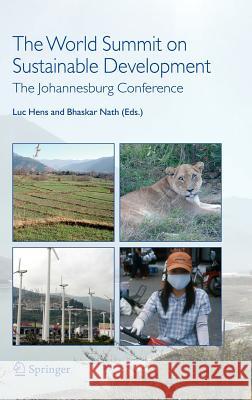The World Summit on Sustainable Development: The Johannesburg Conference » książka
The World Summit on Sustainable Development: The Johannesburg Conference
ISBN-13: 9781402036521 / Angielski / Twarda / 2005 / 422 str.
The Johannesburg Earth Summit, which took place in the summer of 2002, confirmed the irreversible nature of the process that is founded upon the concept of Sustainable Development initially given form at Rio de Janeiro ten years earlier. This process is to be welcomed, while at the same time recognising the tremendous work that has taken place in converting this concept into a more concrete vision. The Sustainable Development concept relates to every human activity, covering the social, economic and ecological dimensions, which are often in conflict. Consequently, it is most important to include in research programmes some thought of the way people behave. In theory, the general elements of this inclusion are relatively easily defined. However, assessing the effects of one or another decision on all the interactions between the social, economic and ecological dimensions involves significant difficulties. All the more since we have to recognise, in all modesty, that humanity has not always excelled in the art of forward studies. In fact, the Precautionary Principle was introduced partly as a reaction to the sometimes blind confidence in technology and logic (even if it is sometimes invoked in an exaggerated manner). Nevertheless, the duty to act for the sake of present and future generations is pressing. Throughout history mankind has had to adapt and to innovate. Now, at st the beginning of the 21 century the urgent need for such adaptations is obvious.











